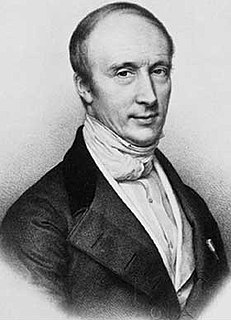A Quote by Karl Jaspers
What is meaningful cannot in fact be isolated…. We achieve understanding within a circular movement from particular facts to the whole that includes them and back again from the whole thus reached to the particular significant facts.
Related Quotes
The significance of a fact is relative to [the general body of scientific] knowledge. To say that a fact is significant in science, is to say that it helps to establish or refute some general law; for science, though it starts from observation of the particular, is not concerned essentially with the particular, but with the general. A fact, in science, is not a mere fact, but an instance. In this the scientist differs from the artist, who, if he deigns to notice facts at all, is likely to notice them in all their particularity.
Truths emerge from facts, but they dip forward into facts again and add to them; which facts again create or reveal new truth (the word is indifferent) and so on indefinitely. The 'facts' themselves meanwhile are not true. They simply are. Truth is the function of the beliefs that start and terminate among them.
What are the facts? Again and again and again – what are the facts? Shun wishful thinking, ignore divine revelation, forget what “the stars foretell,” avoid opinion, care not what the neighbors think, never mind the unguessable “verdict of history” – what are the facts, and to how many decimal places? You pilot always into an unknown future; facts are your single clue. Get the facts!
People think that they have no right to judge a fact - all they have to do is to accept it. Thus from the moment that technics, the State, or production, are facts, we must worship them as facts, and we must try to adapt ourselves to them. This is the very heart of modern religion, the religion of the established fact, the religion on which depend the lesser religions of the dollar, race, or the proletariat, which are only expressions of the great modern divinity, the Moloch of fact.
[The scientist] believes passionately in facts, in measured facts. He believes there are no bad facts, that all facts are good facts, though they may be facts about bad things, and his intellectual satisfaction can come only from the acquisition of accurately known facts, from their organization into a body of knowledge, in which the inter-relationship of the measured facts is the dominant consideration.
First, it is necessary to study the facts, to multiply the number of observations, and then later to search for formulas that connect them so as thus to discern the particular laws governing a certain class of phenomena. In general, it is not until after these particular laws have been established that one can expect to discover and articulate the more general laws that complete theories by bringing a multitude of apparently very diverse phenomena together under a single governing principle.
Tthe first rule is that you can't really know anything if you just remember isolated facts and try and bang 'em back. If the facts don't hang together on a latticework of theory, you don't have them in a usable form.... You may have noticed students who just try to remember and pound back what is remembered. Well, they fail in school and in life.
Facts are neutral until human beings add their own meaning to those facts. People make their decisions based on what the facts mean to them, not on the facts themselves. The meaning they add to facts depends on their current story … facts are not terribly useful to influencing others. People don’t need new facts—they need a new story.
The Gospel writers are not really interested primarily in the facts of the birth but in the significance, the meaning for them of that birth just as the people who love us are not really interested primarily in the facts of our births but in what it meant to them when we were born and how for them the world was never the same again, how their whole lives were changed with new significance.





































